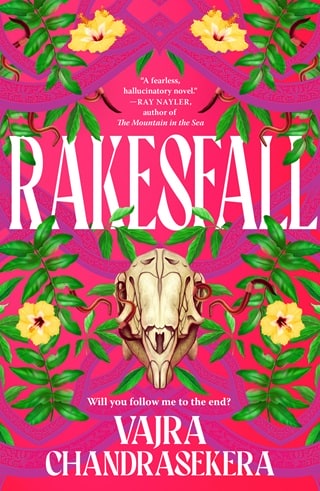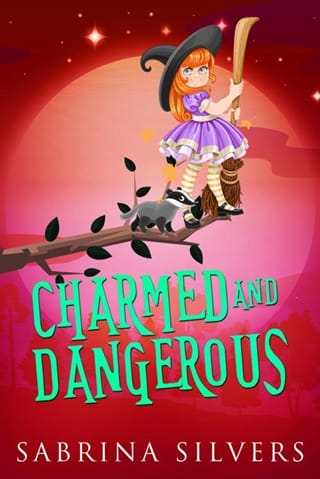Chapter 10 Fundamental Right
The law office is dense with heavy dark wood, its weight and age almost palpable. The burdened carvings of strange fruit on the door seem to hold within themselves the voices of the long dead. Vidyucchika sits on a bench, feet shuffling to a rhythm only she can hear, the ever-present fever warm behind her eyes. She waits for Odeg to show up, or make time for her if he is already in the building. Above the sombre breadth of the staircase in front of her, each step a little too wide and a little too deep, dust motes spiral in sunbeams from the huge east-facing window at the landing above. The receptionist smiles mechanically whenever Vidyucchika looks at her. An hour elapses, then a year. Finally, the receptionist nods and tells her how to find Odeg's office. Vidyucchika climbs stiffly, her thighs aching from sitting and dancing in place, from the vast league-spanning steps the oversized stairs oblige her to take. With each step she can feel the wood under her feet groan from Lambajihva's passage through its fibres. He is never far from her.
Odeg doesn't have an office of his own. The room is crowded with people at desks and computers, only some of whom look up when Vidyucchika enters. She asks for Odeg and is directed with head-shakes and waves toward one corner of the room, where she finds him typing with two of nine fingers. Missing is the littlest finger of his right hand; there is a long-healed scar.
"Your mother asked me to see you," Vidyucchika says, understanding immediately that this sentence has forever set Odeg against her. He is not a handsome man, nor does he look like she thought a lawyer ought—well fed, well dressed, selachimorphic and never sinking. His voice plays the part better, dry and serious. She closes her eyes when he speaks, imagining him otherwise. His insides seem laid bare to her, his puffy spleen, his impolite intestinal muddle. She imagines him naked, the shriveled, ordinary penis that he worries is too small, and she feels tired.
She interrupts him—he offers nothing but fussy protestations and refusals to work for his mother, nothing worth listening to when she and he and his mother all know perfectly well that he will agree in the end. Vidyucchika understood this the moment she saw him. Instead, she asks him if he is aware his mother is setting them up.
"I should have realized that's what this was about," she says. "I'm not sure she's even serious about going to court."
"I don't think that's what this is about at all," Odeg says stiffly, and to prove it, agrees to file the case, alleging the violation of Mrs. Akan's fundamental right to freedom from torture or cruel, inhuman, or degrading treatment, such as marriage beyond the bounds of death.
They fuck once, later, when Odeg finally visits the house, under temporary terms of truce with his mother. It is desperate and desultory, beginning after a late evening of tiresome strategy discussions. After Mrs. Akan finally goes to bed, Odeg comes upstairs with Vidyucchika to continue this legalistic conversation of which she has long since grown tired. She kisses him to make him stop talking, and after that sex unfolds rotely. It is all she can do not to roll her eyes. In the morning's clear light, she realizes he's dead. He sleeps facedown and naked, exposing the death wounds on his back, scars like whip marks; they are so faded that she didn't feel them under her hands last night. He wakes when she stares at them too long, as if they are still tender to the weight of her gaze.
"How did it happen?" she asks. It's a rude question, but they are intimate now. He shrugs, sitting up and turning to face her, hiding the marks. She asks again, then a third time, and he sighs.
"My mother," he says, and then shakes his head.
She realizes they both faked orgasms last night—the dead do not come—and wants to make a joke of it, but the moment is wrong. It's not that kind of intimacy.
"I'm not going to fuck you again if you don't tell me secrets," she points out instead, but he's shaking his head even harder, and she makes him stop in case it comes off.
The law ponders and plods with heavy feet. The case proceeds in fits and starts. Odeg visits regularly to give updates. With dummala prices plateauing at astronomical heights, Mr. Akan is a regular in the house, showing up most mornings for tea and sometimes breakfast and conversation. When Odeg and Mr. Akan are there together, the atmosphere thickens into sour mist, obscuring the outlines of bodies and objects, and Vidyucchika retreats to her room until at least one of them leaves and the air becomes breathable again. Mrs. Akan joins her sometimes, though more often she stays downstairs, breathing with difficulty, trying to make small talk with her family. Lambajihva stays in the walls of Vidyucchika's room for the most part, keeping his distance from everyone else.
They do not conceal the case from Mr. Akan, but he seems to have little to say about it. Odeg is very active, for a dead man: he works full time, he has hobbies—he collects miniature icons of foreign gods and superheroes, which he paints in non-canonical colours—and he is on all the dating apps that don't discriminate against the dead, which is to say, about half of them. Mr. Akan is not so engaged with the world. He runs out of conversation and fine motor control after about half an hour of sustained effort. Reduced to grunts and stiff movements, it becomes more and more obvious that he is dead.
Mrs. Akan is the one who reveals her family's secrets to Vidyucchika in the end. As the only living member, perhaps she is the only one capable of that much change. Or perhaps it is purely instrumental, as a full account of the history must be documented for the purposes of the case, and Mrs. Akan recruits Vidyucchika to write it all down and get it into a semblance of order. Other people's secrets always seem simple and obvious in hindsight, even more so once abstracted and summarized to their uttermost pith. Vidyucchika is disappointed. She makes a little flow chart.
ODEG (age 11)←KILLED (accidentally) by his mother (indirectly)←acting through an adura she employed who BEAT him so severely with a cane that he sickened and died←in an attempt to EXORCISE him←of the devil his mother believed to have POSSESSED him←because Mr. Akan was KILLED by ODEG (age 10)…???←with a PISTOL (loaded) that MR. AKAN kept in the house for protection during the troubled times.
Vidyucchika returns to Mrs. Akan, tapping at the question marks, because she doesn't understand why the ten-year-old Odeg would have shot his father, but of course Mrs. Akan has no explanation except for the devil that she still believes possessed her son between the ages of ten and eleven, from which he was freed only through death.
Later, she asks Odeg, who denies ever having been possessed.
"I grew up dead," Odeg points out. "I know of devils. I've seen some, moving about the city. I've never been close enough to touch one in my life, or in my death."
"But why did you shoot your father?" Vidyucchika demands.
"It was an accident," Odeg says stubbornly, but she doesn't believe this at all.
"My father had a gun in the house, too," she tells him. "During the troubled times, when I was a girl." He doesn't respond to this, and after a while she adds: "I didn't know dead children could grow up."
Her father, a soft-bellied man with a neat moustache, brought home the black-market pistol early in the troubled times. Vidyucchika did not and does not know guns: All she retains from her childish memories is that it was black and silver, wrapped in a ratty, fake leather holster. Heavy, the one time she sneaked into her parents' bedroom while they were sleeping and took it out of the almirah to heft it in her hands. Her father, moustache sweating, had omitted to buy any bullets. At that time she thought he had merely forgotten that this was necessary—he didn't seem to know any more about guns than she did. Listening to her parents fight about it later, it became clear that the omission was intentional. Her father wanted the weapon purely for rhetorical value. If confronted, if the pogrom or the paramilitaries or the police (secret) or the police (regular) came to the door, he would show them he was armed and they would retreat. Maybe. And if they did not retreat, well, he didn't want to hurt anybody.
They would hurt us, though, her mother pointed out. For some reason, this made both her parents laugh. When young Vidyucchika protested, her father told her the simile of the two-handled saw, a saying of the wise saints, sometimes attributed to the Perfect and Kind himself.
The Simile of the Two-Handled Saw
Even if the most secret of police were to savagely carve you up with a two-handled saw, limb from limb, do not allow your heart to be angered. Say to yourself: my heart will be unaffected. I will radiate goodwill and sympathy. I will not hate. I will pervade them, and beginning from them the world, with an awareness free from hostility or ill will, abundant, enlarged, immeasurable.
Vidyucchika thinks about the simile often. It has stayed with her, long after the murder of her parents—and did they die abundant and immeasurable? It is unclear. She was hiding in the ceiling crawl space where her mother put her as soon as death knocked on their door, and as her parents had taught her, she lay there quiet and unmoving until the noise stopped, and for hours afterward. When her parents finally called up to her that it was safe to come down, they were very dead. Things grew awkward between them after that, and not only because her parents were bloody and ragged. It was the secret of why they had come to be that way: she could not bear to tell them how it was ultimately her fault. They were dead, incapable of forgiveness. She kept it tight behind her lips like a pebble under her tongue.
It grew harder to live in their house with that stone growing ever larger in her mouth, and she moved away as soon as she was old enough to work. Her parents wept without the tears their bodies no longer produced, as if enacting a ritual they had vaguely heard about. They made her promise to call, to visit. She never has, and since they never leave the site of their murder, endlessly circling that living room where the blood spatter has long since dried into dirty stains in black and brown, she hopes never to see them again.
As both child and adult, Vidyucchika's exegesis of the simile of the two-handled saw begins in the same place: Why is it a two-handled saw? Why not a gun, a knife, a regular single-person saw? The two handles require that the act of sawing is done by two people. It is a collaboration, a shared responsibility. This is not a simile about murderers and their individual passions and psychopathologies. The actors in the simile changed, in fact, every time her parents told it to her. Usually, it was the most secret of police. Sometimes it was the pogrom, the organized mob; sometimes bandits, organized crime. Always the concept of organization was central. It is impossible, after all, to use a two-handled saw without cooperation, and not only between the hands at the handles. It is an unwieldy weapon, not one designed as such, unable to deliver a swift killing blow. To saw a victim limb from limb, they must be restrained, and rescuers must be prevented from coming to help them. Each step requires more teamwork. This complex work belongs to dedicated professionals, whose time is valuable and must be paid for. So it requires still further support to discover the correct victims, the designated targets, which in turn requires an apparatus of surveillance and halieutics, of inquisition and informants, of warrants and command responsibilities, of training and indoctrination, of ideology, policy, and education. In short, it requires a state with a death politics. It requires a culture.
The simile of the two-handled saw is not a parable. It isn't even a story. That it is self-consciously a simile suggests an unseriousness, a little haha hoho, a little lol j/k. It is an exaggeration, it says without saying, not meant to be taken literally. Taken in the full context of the sermon in which it was originally given, it describes the importance of keeping one's temper in the face of insult or violence. The saw is a rhetorical figure. But at the same time, it is inescapable that the rhetorical figure takes this particular form, this extreme imagery of being carved up limb from limb—it does not, for instance, speak of being pelted with rotten eggs, a pie in the face, a thrown shoe. There is no sense that there is a difference of kind between a harsh word and a saw to the limbs; in the sermon, these are only differences of degree. The response to all insult, to all violence, is sympathy for the devil that does it to you. Whether you are struck with hand or stone or club or knife, or carved up with a saw, you must not hate.
But what about the hand that strikes? What about the hands that hold the stone or the club or the knife? What of the hands upon hands needed for the saw? What of the state and the death politics? What of the hierarchies of power that organize and direct this violence? What about the givers of orders, the payers of bills? Is this not an engine of hate, deriving from hate, designed with hate, operating on ancient principles of hate?
The simile is told with a purpose. It teaches the hated to hold still. To not buck under the saw's teeth.
 Fullepub
Fullepub 



